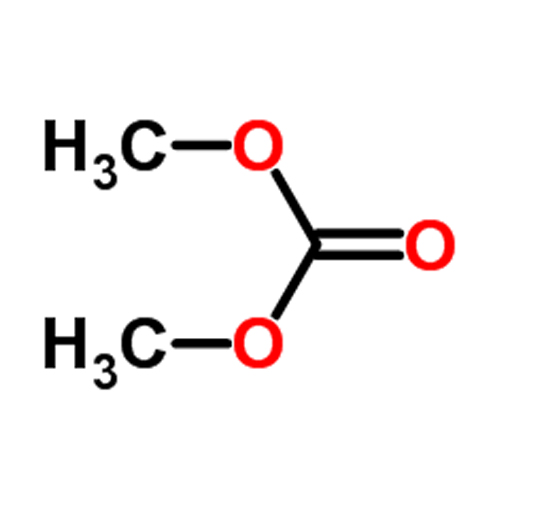WHAT IS DIMETHYL CARBONATE?
(2023年06月17日)https://www.topfinechem.com/what-is-dimethyl-carbonate.html
Dimethyl carbonate (DMC) is an organic compound that can be regarded as the dimethyl ester of carbonic acid. It is a flammable clarified liquid with a boiling point of 90°C, insoluble in water, and can be used as a methylation reagent. Compared to other methylation reagents, such as iodomethane and dimethyl sulfate, dimethyl carbonate is less toxic and biodegradable.
Preparation
Dimethyl carbonate is no longer commonly used as a raw material for the production of phosgene. Instead, it is produced by catalytic oxidation of methanol in the presence of oxygen, which is more environmentally friendly. Dimethyl carbonate can be methylated to aniline, phenol and carboxylic acid, but many reactions require high pressure. DBU can be added at reflux to DMC to catalyze the methylation of carboxylic acids by dimethyl carbonate by.
Uses
Dimethyl carbonate has a wide range of uses, replacing phosgene as a carbonylating agent, replacing dimethyl sulfate (DMS) as a methylating agent, and as a low-toxicity excellent solvent and potential gasoline additive.
SUBSTITUTION OF PHOSGENE AS CARBONYLATION AGENT
Photogas has the advantage of high reactivity, but the by-products of photogas are highly toxic and corrosive, so it faces great environmental pressure, and will be gradually eliminated under the background of increasing pressure of environmental policies. Dimethyl carbonate has a similar nucleophilic reaction center. When its carbonyl group is attacked by nucleophiles, the acyloxy bond is broken and a carbonyl compound is formed, and the by-product is methanol. Therefore, dimethyl carbonate can replace phosgene as a safe reaction reagent for the synthesis of carbonic acid derivatives such as carbamate pesticides, polycarbonate (PC), isocyanates (MDI, TDI, etc.), of which polycarbonate (PC) is the area with the largest demand for dimethyl carbonate in the future.
SUBSTITUTE FOR DIMETHYL SULFATE (DMS) AS A METHYLATING AGENT
Dimethyl sulfate is more similar to phosgene, and also has great toxicity, and the by-product sulfuric acid is more polluting. When the methyl carbon of dimethyl carbonate receives nucleophilic attack, its alkoxy bond is broken to produce methylation products with similar effect as DMS but with higher reaction yield and simpler process. The main applications include the synthesis of organic intermediates, pharmaceutical products, pesticide products, etc.
EXCELLENT SOLVENT WITH LOW TOXICITY
Dimethyl sulfate has excellent solubility, a narrow melting and boiling point range of 4℃~93℃, high surface tension and low viscosity, as well as a high evaporation temperature and fast evaporation speed, so it can be used as a low-toxic solvent in the coating industry and pharmaceutical industry. Dimethyl sulfate also has high flash point, low vapor pressure and high lower explosion limit in air, so it is a green organic solvent that combines cleanliness and safety.
POTENTIAL GASOLINE ADDITIVE
With a high oxygen content of 53% in the molecule, dimethyl sulfate is also capable of excellent octane boosting effects and has properties such as non-phase separation, low toxicity and rapid biodegradability. The amount of dimethyl sulfate used to achieve the same oxygen content in gasoline is 4.5 times less than that of methyl tertiary butyl ether (MTBE), thus reducing the total emissions of hydrocarbons, carbon monoxide and formaldehyde in vehicle exhaust. It also overcomes the disadvantages of commonly used gasoline additives that are easily soluble in water and pollute groundwater sources, so dimethyl sulfate will become one of the most promising gasoline additives to replace MTBE.
As one of fine chemicals manufacturer, we can offer high quality bulk and fine chemicals for sale, anything you need, please leave us a message.
- このできごとのURL:



コメント